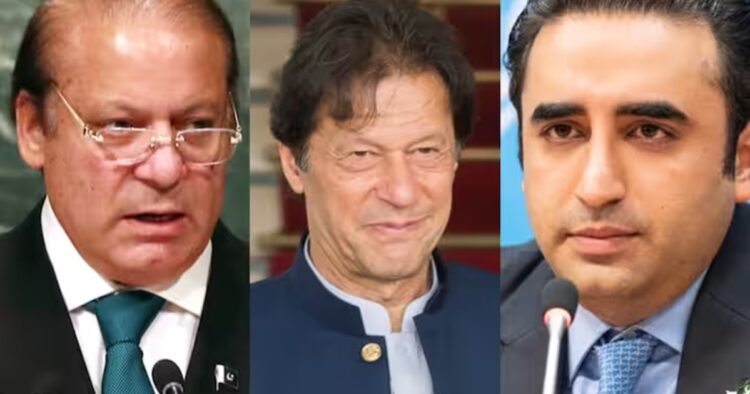As Pakistan awaits final election results, political parties scramble to strategize amidst unofficial trends reported by local media. The country’s Election Commission is yet to declare the official outcome, but discussions for coalition formation are already underway, particularly crucial in the politically divided landscape. Notably, former Prime Minister Imran Khan’s party faces a unique predicament in the unfolding scenario.
The Pakistan Election comprised contests for 265 seats in the national assembly, with one seat postponed due to a candidate’s demise. A simple majority of 133 seats is required for a political party to secure power. However, with reserved slots for women and minorities, a total of 169 seats are needed for a simple majority out of 336 total seats.
The main contenders in the polls were Nawaz Sharif’s Pakistan Muslim League (N), Bilawal Bhutto Zardari’s Pakistan Peoples Party (PPP), and Imran Khan’s Pakistan Tehreek-e-Insaf (PTI). Notably, PTI leaders contested as independent candidates after being barred from using the party symbol, a cricket bat, by the Supreme Court and Election Commission.
Unofficial tallies reported by Pakistani media outlet Dawn revealed trends in 245 out of 265 National Assembly constituencies. Independent candidates, largely backed by Imran Khan’s faction, led with 99 seats, while PML-N and PPP secured 69 and 52 seats, respectively. However, the final outcome remains uncertain pending official declaration.
Amidst the uncertainty, discussions regarding coalition formation have intensified. PML-N’s Nawaz Sharif, eyeing a record fourth term as prime minister, declared his party as the single largest winner. Reports surfaced suggesting an unexpected coalition between PML-N and PPP, despite previous rivalries.
Imran Khan’s PTI, though leading in unofficial counts, faces significant hurdles. With candidates labeled as independents, PTI may not be eligible for reserved seats for minorities and women. Additionally, legal challenges and Imran Khan’s incarceration complicate the party’s path to power.
Despite challenges, options remain for PTI-backed candidates. They could choose to align with existing parties, support another political entity, or form a new group. Alternatively, opting for opposition unity could position them advantageously for the role of opposition leader in the National Assembly.
As the political landscape evolves, uncertainty looms over the formation of the new government in Pakistan. Imran Khan’s senior aide hinted at peaceful protests if complete results are not announced promptly, underscoring the high stakes and tensions surrounding the electoral process.

















Comments